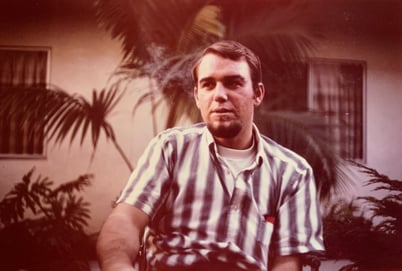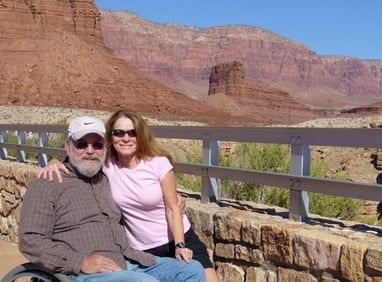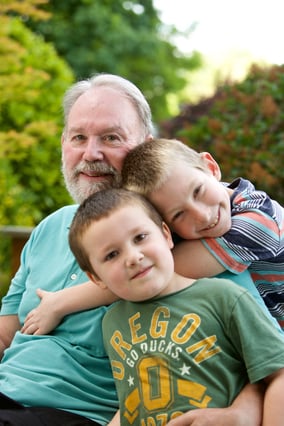In 1965, a friend invited Tim Gilmer to fly to the California coast.

Gilmer, finishing a summer of farm work in his hometown before returning to UCLA for his junior year, was intrigued.
He’d been on an airplane once when he was a young boy but had no memory of it. The flight—like much of the life that lay ahead of him–felt full of possibility. He said yes.
What followed was catastrophic. While climbing a bluff near the landing strip, the single-engine Cessna lost power and stalled, crashing into the mountaintop. Gilmer heard his friend die as he lay nearby, unable to move. He believed he would die there, too.
Gilmer is now 76 years old, a husband, father, farmer, grandfather and writer forever trying to cram in more time for everything. He is a retiree distinctly uninterested in downtime.
“Once I couldn’t imagine my future,” he says. “Now, I can’t stop imagining it. I don’t know if I’ll ever get to the point where I sit and relax because I’ve done everything I want to do.”
The details of the plane crash, including his rescue, remain imprinted on Gilmer’s memory more than 55 years later. It was a day that upended his entire life; he lost a friend and sustained a T11 spinal cord injury. The trauma of both would take years to process; a period spiked with grief and guilt and denial.
“I know how it happened,” Gilmer says. “I could never figure out why. The existential reason. The metaphysical aspect of, ‘How could this happen to me at the age of 20? Am I a bad person? Am I being punished?’”
Accepting the severity of the injury was difficult from the start. During his early weeks in the hospital, Gilmer quietly believed that the paralysis would fade.
“I thought it was temporary,” he says. “‘You get hurt, you heal, you get better.’”

One day, Gilmer asked a nurse when he was “going to be able to get up and get out of here, when this was going to go away.”
“She got this look on her face which told me the news,” he says.
Gilmer’s complicated emotional recovery was compounded by a profound sense of isolation. It was 1965; there was no internet to seek out peers experiencing similar challenges, no Christopher & Dana Reeve Foundation or United Spinal Association to call for resources or connection.
“I never heard of a support group,” he says. “I didn’t know anyone I could talk to about it.”
At the time, the disability rights movement was in its embryonic stage, but concrete gains for the community were still years—even decades–away. Gilmer’s new life was punctuated by discrimination, beginning with his return to UCLA, where the physical barriers faced by wheelchair users instantly rerouted his academic career.
“I planned my studies around what buildings were accessible and what courses I could take in them,” he says. “That led me away from science and math and toward liberal arts.”
Before the accident, Gilmer harbored dreams of playing Major League Baseball. The injury prompted anguished, existential questions— “Who was I? Where was I going?”–that he could not answer.

Gilmer found respite through short story and poetry classes. His poems, he laughs, were “pure crap” but provided a much-needed outlet for his anger and frustration.
“It enabled me to think about what I was feeling,” he says. “I had a wound, and it made me write and write.”
But Gilmer also began to drink and use drugs, a means of escape from a life he did not want. He graduated but continued to spiral downward, bouncing from job to job, becoming more and more disconnected from reality. In 1971, he experienced a breakdown and returned home to his parents’ farm.
One day, Gilmer found himself alone, crying and praying to God. He experienced a dramatic moment of calm and peacefulness.
“That’s when I realized I had to go live my life, to take what I had and go forward,” he says. “I had made no progress until that moment. I accepted that I was paralyzed for life. It brought clarity.”
Gilmer restarted a life that had, in many ways, stopped the day the plane crashed. He met and fell in love with his future wife. They gambled on a fresh start, pulled up stakes, and moved to Oregon, where Gilmer pursued a master’s degree at Southern Oregon University. He sought out other students with disabilities, helped establish disabled parking on campus and, critically, discovered a sense of community that had been missing.



